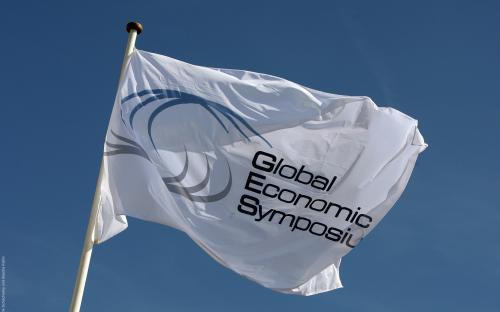Sharing the norms and values that enable global coexistence, while respecting differences

Our capacity for constructive collective action at substantial scales in our highly connected world is very limited. Systemic failure on several levels simultaneously is straining our capacity to manage economies, stabilize societies, manage conflicts and respect ecologies, individually and collectively. Symmetry breaks on each level seem to be shifting established patterns to asymmetrical states. This puts cooperative existence at risk and encourage efforts at domination, due to the destruction of the normative conditions that enable constructive equilibrium. There are many examples from Eurasia, through Europe and the Mediterranean, to the Levant and other parts of the Arab region, Africa and Central Asia. Tensions in East Asia, not least in the East and South China seas, are further sources of concern. Few states around the world have not experienced domestic social stress in the past five years, much of it related to the economic crisis. With weakened domestic institutions, however, governments lack effective instruments to respond to social needs.
Restoring symmetry between economy, society and polity demands rebalancing at several scales. This requires us to develop better understanding of the workings of complex systems; and deeper insight into the perceived interests and prioritised values of states and multilateral institutions, so that we can determine at what scales collective agreement on particular outcomes can be accommodated in a set of collectively-agreed rules. Tentatively, based on research to date, we suggest a triadic structure of governance that recognizes the need to (i) subordinate key global public goods (climate, oceans, etc.) and certain areas of behaviour that threaten a tragedy of the commons, to supranational systems; (ii) cooperate more closely and harmonize rules on human rights, trade, financial flows and security (e.g. weapons of mass destruction, terrorism, pandemic control) through international conventions and treaties; and; (iii) commit to common objectives in other areas, without creating institutions to control or enforce compliance.
We are interrogating these questions in two sessions on
Norms for Global Governance at the
Global Economic Symposium 2015, to refine key components of the research agenda. In two sessions on October 13, four leading researchers, whose papers are included here, will address the content of our
Diverse Cultural Heritages; and then explore the
Challenges of Collective Action that arise from these.
Research Papers:
Islam Paper:
https://www.futureworldfoundation.org/Content/Article.aspx?ArticleID=16455 />China Paper: https://www.futureworldfoundation.org/Content/Article.aspx?ArticleID=16444
Russia Paper: https://www.futureworldfoundation.org/Content/Article.aspx?ArticleID=16445
Ethical Scaffold: https://www.futureworldfoundation.org/Content/Article.aspx?ArticleID=16446
Related Articles: